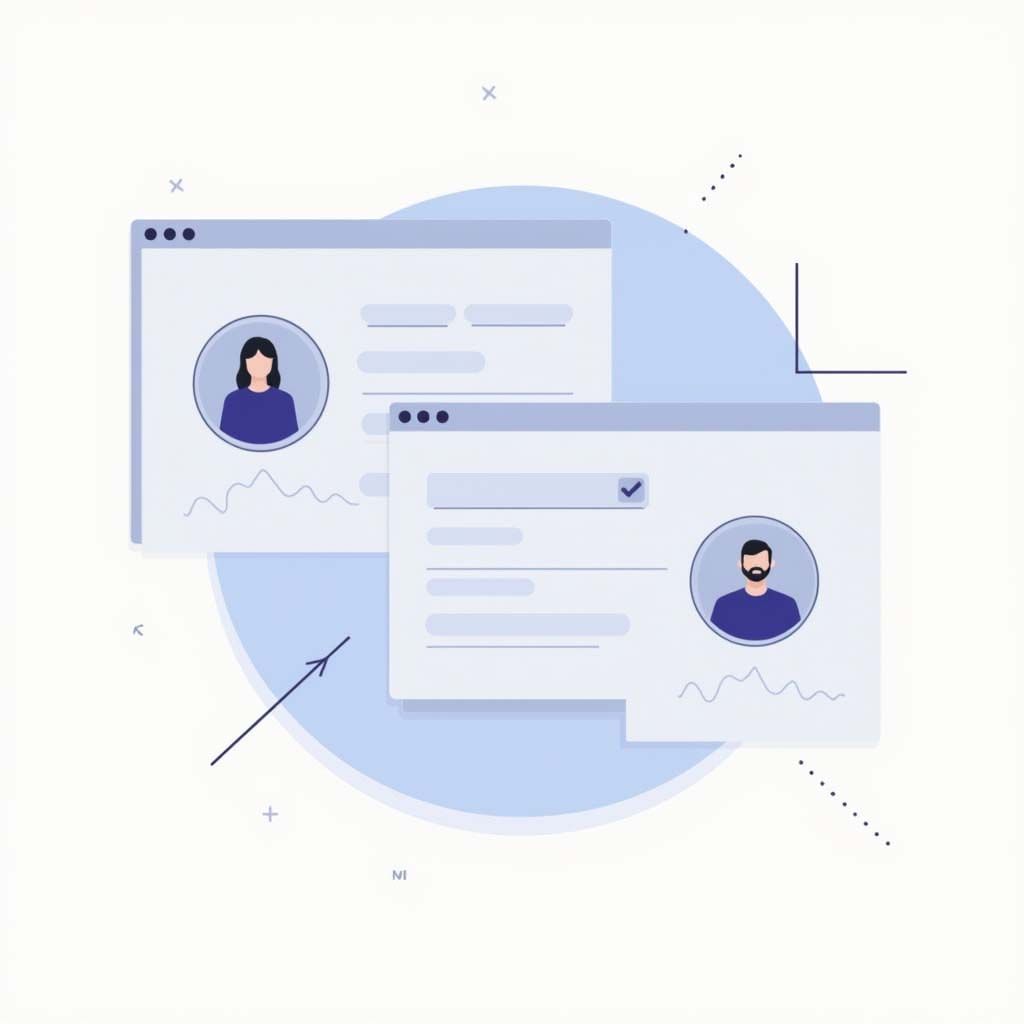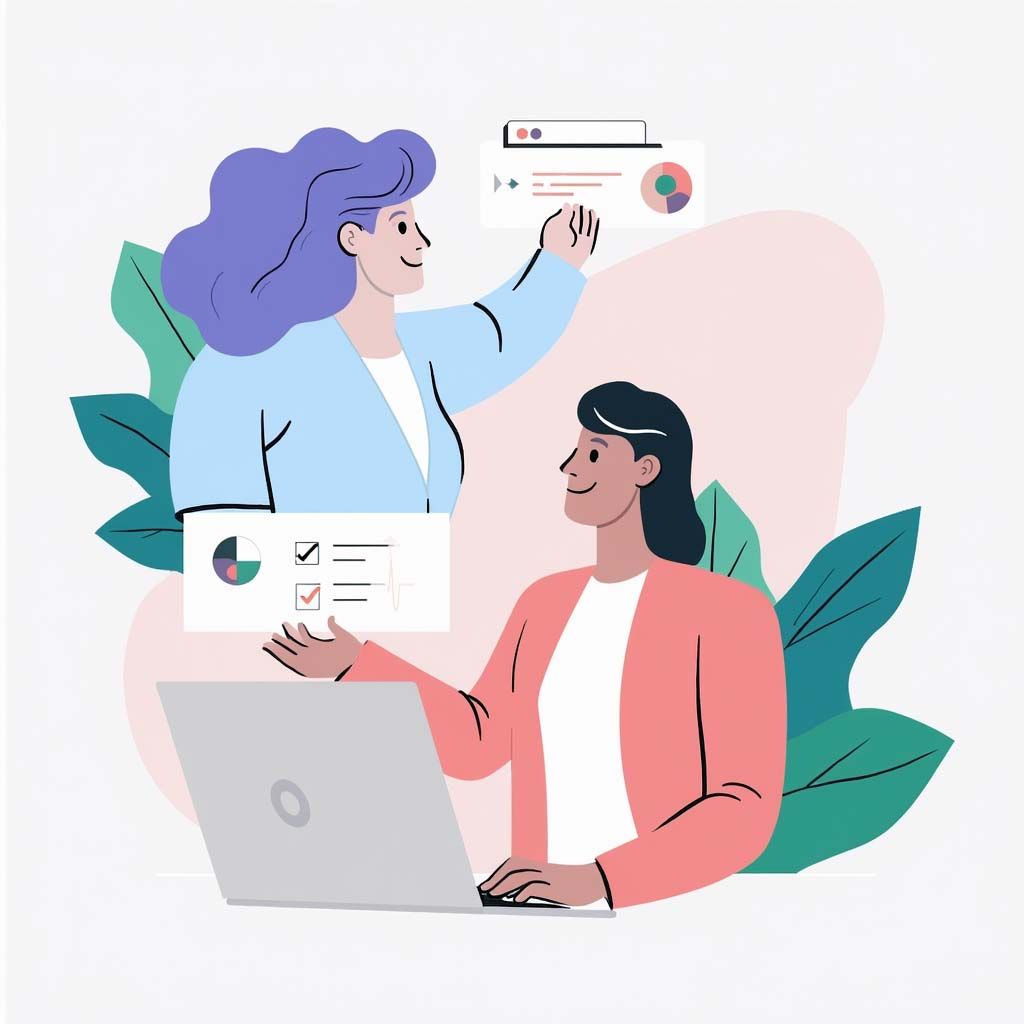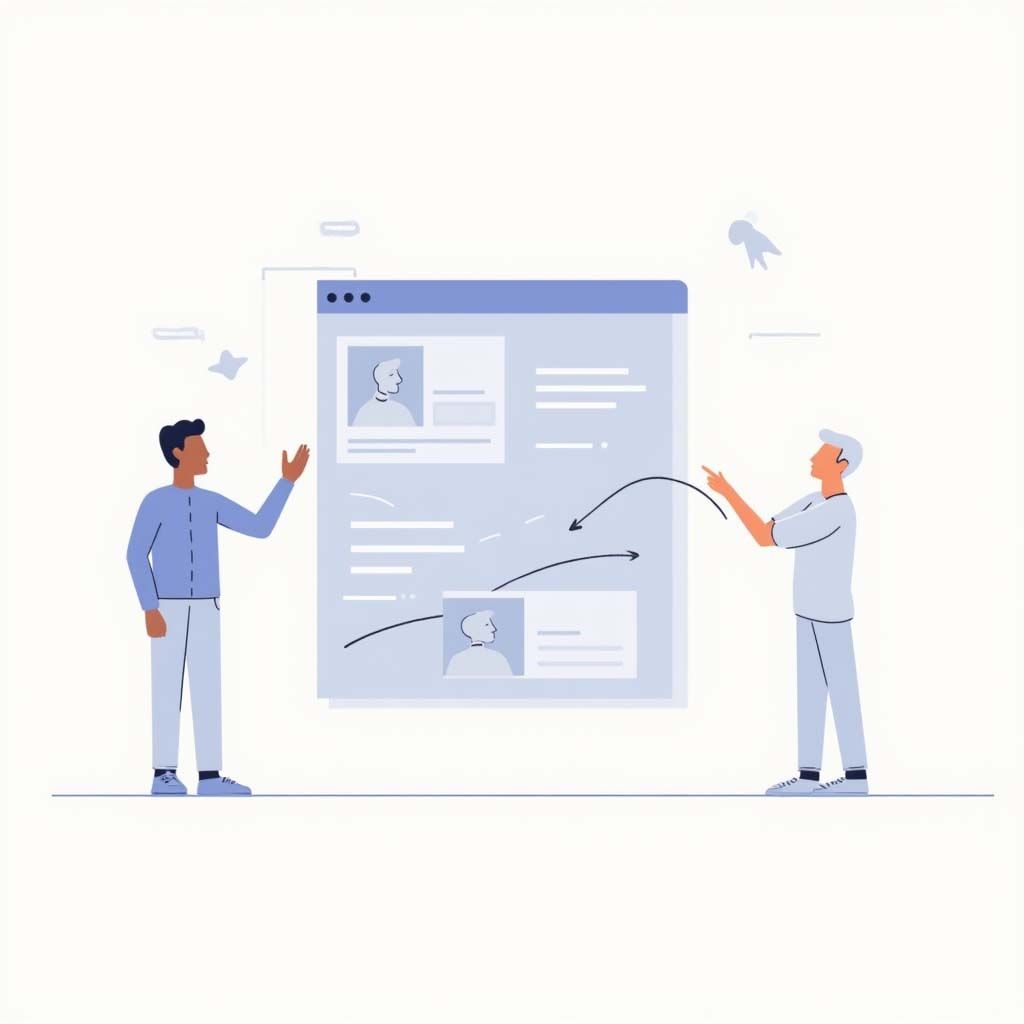B2B Influencer Marketing: Strategies, Benefits, and Best Platforms

Understanding B2B Influencer Marketing
B2B influencer marketing involves leveraging industry experts, thought leaders, and niche professionals to promote products or services to business audiences. Unlike traditional influencer marketing focused on direct-to-consumer sales, B2B strategies emphasize trust-building, long-term relationships, and informed decision-making.
A well-executed campaign enhances credibility, extends brand reach, and drives engagement with key stakeholders. Companies partnering with respected professionals in their industry can position themselves as authorities, leading to improved brand perception and customer loyalty.
How B2B Influencer Marketing Works
B2B influencer marketing operates through strategic partnerships where influencers create and share content relevant to their audience. This can take various forms, including:
-
Guest articles and blog collaborations on industry-specific websites.
-
Social media endorsements showcasing product use cases or insights.
-
Webinars and live Q&A sessions featuring influencers discussing industry trends.
-
Podcast appearances where influencers share their expertise while endorsing a brand.
Unlike B2C influencer marketing, where immediate conversions are often the goal, B2B campaigns prioritize thought leadership, lead generation, and long-term engagement.
Differences Between B2B and B2C Influencer Marketing
Audience
B2B Influencer Marketing Business decision-makers, professionals B2C Influencer Marketing General consumers
Buying Process
B2B Influencer Marketing Longer sales cycles, multiple stakeholders B2C Influencer Marketing Shorter, impulse-driven
Content Format
B2B Influencer Marketing In-depth whitepapers, webinars, industry talks B2C Influencer Marketing Short-form content, lifestyle visuals
Influencer Type
B2B Influencer Marketing Industry experts, analysts, executives B2C Influencer Marketing Celebrities, social media personalities
B2B influencer marketing requires a more nuanced approach, as business buyers demand credibility, data-driven insights, and peer recommendations before making purchasing decisions.
Role of Thought Leaders in B2B Influence
Thought leaders play a critical role in shaping industry conversations. Their insights carry weight due to their expertise and established reputation. Companies that collaborate with thought leaders benefit from:
-
Increased authority within their sector.
-
Higher engagement rates as audiences trust industry experts.
-
Stronger lead generation by attracting decision-makers looking for valuable insights.
Examples include Microsoft partnering with National Geographic photographers for AI-powered campaigns or Cisco leveraging the Cisco Champions community to boost credibility.

Benefits of B2B Influencer Marketing
Expanded Brand Reach and Visibility
B2B buyers rely heavily on third-party insights when evaluating vendors. Research suggests decision-makers value third-party interactions 1.4 times more than direct supplier interactions when considering a purchase. Partnering with industry influencers allows brands to extend their reach to untapped audiences through trusted voices.
Increased Engagement on Digital Channels
Social media engagement is a critical metric for B2B brands, with 50% of marketers citing increased engagement as the biggest advantage of influencer marketing. Thought leaders drive meaningful conversations through LinkedIn discussions, Twitter threads, and YouTube explainer videos, fostering higher interaction levels.
Strengthened Brand Trust and Credibility
Trust is essential in B2B transactions, where purchase decisions often involve significant financial and strategic commitments. By collaborating with respected industry experts, brands can leverage established relationships to enhance their credibility. Audiences are more likely to trust a product or service endorsed by an influencer they follow regularly.
High Return on Investment and Cost Efficiency
B2B influencer marketing can deliver a strong return on investment. Research shows that companies earn an average of $5.20 for every $1 spent, resulting in an impressive 420% ROI. Unlike paid advertising, influencer partnerships can yield sustained benefits through evergreen content, ongoing brand mentions, and thought leadership collaborations.
Best Platforms for B2B Influencer Marketing
LinkedIn as the Leading B2B Influencer Platform
LinkedIn remains the most effective platform for B2B influencer marketing, given its professional user base and content-driven format. Brands can engage with influencers through:
-
LinkedIn Live events to discuss industry trends.
-
Thought leadership articles showcasing influencer expertise.
-
Collaborative posts and case studies to highlight business success stories.
With over 950 million professionals on the platform, LinkedIn offers direct access to decision-makers and key stakeholders.
Facebook and X (Twitter) for Industry Conversations
While LinkedIn dominates, Facebook Groups and X (Twitter) provide additional opportunities for B2B engagement.
-
Facebook Groups facilitate industry discussions and community-building.
-
Twitter Threads allow influencers to share insights and drive engagement.
-
Live Twitter Spaces provide a platform for Q&A sessions and thought leadership discussions.
Companies leveraging these platforms for industry-specific conversations can improve visibility and build stronger relationships.
YouTube and Video Content for Thought Leadership
YouTube has become a powerful tool for B2B influencer marketing, especially for explainer videos, product demos, and expert interviews. Many decision-makers turn to YouTube for:
-
In-depth reviews before making a purchase.
-
Panel discussions and interviews featuring industry experts.
-
Case studies demonstrating product applications.
Influencers like Ali Abdaal (business productivity) and Neil Patel (SEO & marketing) effectively use YouTube to educate and influence business audiences.
Exploring TikTok’s WorkTok for B2B Engagement
TikTok, once dominated by B2C content, is now seeing growth in B2B influencer marketing through the WorkTok trend. Professional influencers create engaging short-form videos on:
-
Business strategies and productivity tips.
-
Industry-specific insights in finance, marketing, and tech.
-
Career advice and professional growth strategies.
Influencer Discovery and Management Platforms
Beyond social media, businesses need powerful tools to discover, vet, and manage influencer campaigns efficiently. Platforms like Yoloco provide AI-driven solutions to optimize B2B influencer marketing strategies.
⭐️ Yoloco Features for B2B Influencer Marketing:
Influencer Discovery Find high-performing creators across LinkedIn, YouTube, TikTok, and Instagram.
Audience Insights Analyze demographics, engagement rates, and authenticity.
Competitor Intelligence Track competitor influencer partnerships and ad campaigns.
Campaign Management Automate influencer outreach, track performance, and generate reports.
Yoloco’s influencer marketing suite provides everything businesses need to discover, vet, and manage influencers for maximum ROI.

How to Develop an Effective B2B Influencer Strategy
A structured approach to B2B influencer marketing ensures campaigns align with business goals, target the right audience, and generate measurable results. Success depends on strategic planning, data-driven insights, and long-term partnerships with credible industry professionals.
Setting Clear Goals Aligned with Business Objectives
Defining objectives is the foundation of any B2B influencer strategy. Goals should align with overall marketing and business KPIs to track effectiveness. Common objectives include:
-
Brand Awareness: Expanding reach within an industry or niche.
-
Lead Generation: Attracting high-quality prospects through thought leadership.
-
Engagement & Authority: Encouraging meaningful interactions and credibility.
-
Conversion & Sales: Driving inquiries, demos, or product purchases.
Setting SMART (Specific, Measurable, Achievable, Relevant, Time-bound) goals helps brands measure performance and optimize future campaigns.
Identifying the Right Influencers in Your Industry
Choosing the right influencers is critical for credibility and engagement. Key factors to consider:
Relevance Influencer’s expertise aligns with your industry.
Engagement Rate High-quality interactions signal audience trust.
Follower Demographics Matches your target audience.
Platform Strength Active on platforms where your audience engages most.
Social listening tools, influencer databases, and manual research help identify professionals with strong industry influence. Collaborating with niche experts often yields better engagement than high-follower generalists.
Using Social Listening to Spot Emerging Trends
Social listening provides real-time insights into industry discussions, helping brands:
-
Identify trending topics for content collaboration.
-
Discover emerging influencers shaping conversations.
-
Analyze audience sentiment toward competitors and industry developments.
Tools like Brandwatch, Sprout Social, and BuzzSumo allow brands to track mentions, hashtags, and discussions to refine influencer selection and messaging.
Structuring Influencer Collaborations for Authenticity
Authenticity is key to B2B influencer success. Instead of rigid brand messaging, influencers should have creative freedom to engage their audience naturally. Best practices include:
-
Co-creating content (webinars, whitepapers, LinkedIn posts) to provide value.
-
Allowing influencers to share personal experiences with a product or service.
-
Encouraging interactive formats such as Q&A sessions or live discussions.
B2B audiences trust expert opinions. A well-structured collaboration enhances credibility without feeling overly promotional.
Measuring Performance and Optimizing Campaigns
Tracking influencer marketing success requires analyzing relevant KPIs:
Engagement Rate Likes, comments, shares, and discussions.
Traffic & Leads Website visits, form submissions, demo requests.
Brand Mentions How often the brand is referenced across channels.
Conversion Rate Sales or sign-ups directly attributed to the campaign.
Analytics tools such as Google Analytics, HubSpot, and LinkedIn Insights help brands refine strategies based on data-driven results.

Successful B2B Influencer Marketing Examples
Several companies have successfully leveraged B2B influencer marketing to increase brand awareness, engagement, and lead generation.
Flock Freight – Winning Awards with a Unique Campaign
Campaign: "Define Your Load" Influencer: Steve Burns (former host of Blue’s Clues) Platform: LinkedIn, YouTube
Flock Freight, a logistics company, collaborated with Steve Burns to simplify complex freight concepts. The creative and relatable campaign earned a Cannes Lion award for its innovative approach. This demonstrates the power of using influencers outside the immediate industry to engage audiences in unexpected ways.
Monday.com – Reaching Young Entrepreneurs Through Influencers
Campaign: Showcasing Monday.com’s Work OS Influencer: Janell Roberts (Entrepreneur & Content Creator) Platform: Instagram, YouTube
Monday.com partnered with Janell Roberts, a young entrepreneur, to showcase how its Work OS helps streamline business operations. Through behind-the-scenes content and real-world applications, the campaign successfully targeted startup founders and growing businesses, boosting brand credibility among emerging entrepreneurs.
Shopify – Leveraging YouTube Creators for Business Growth
Campaign: Productivity & E-Commerce Growth Strategies Influencer: Ali Abdaal (Productivity YouTuber) Platform: YouTube
Shopify tapped into Ali Abdaal’s audience to highlight e-commerce opportunities for solopreneurs. The influencer’s trust-based relationship with his followers helped Shopify reach aspiring online business owners, demonstrating real-world use cases of its platform.
These case studies illustrate the effectiveness of aligning influencer partnerships with brand goals, using engaging content formats, and leveraging the right platforms for B2B marketing success.

Common Challenges in B2B Influencer Marketing
B2B influencer marketing presents unique challenges that require strategic planning to navigate effectively. Unlike B2C campaigns, where reach and engagement are the primary goals, B2B strategies focus on credibility, relationship-building, and long-term value. Addressing these challenges ensures campaigns achieve meaningful business outcomes.
Ensuring Message Authenticity and Transparency
Authenticity plays a crucial role in influencer marketing. B2B buyers rely on trusted industry experts for insights, and any perceived misalignment between an influencer’s values and a brand’s messaging can reduce credibility.
Best practices for maintaining authenticity:
-
Select influencers with a genuine connection to your industry. Their expertise should align with your brand’s niche.
-
Encourage influencers to provide honest, experience-driven content rather than scripted endorsements.
-
Ensure transparency in sponsorships. Regulatory bodies like the FTC require clear disclosure of paid partnerships to maintain trust.
An authentic influencer partnership fosters deeper audience engagement and enhances brand credibility within professional circles.
Avoiding Misalignment Between Brand and Influencer
A common mistake in B2B influencer marketing is selecting influencers based on their following size rather than their industry influence. Misalignment can lead to disengagement and a disconnect between messaging and audience expectations. Key factors to evaluate before collaborating:
-
Industry expertise: Does the influencer have a strong reputation in your sector?
-
Audience demographics: Do their followers match your target decision-makers?
-
Content style: Is their tone and messaging consistent with your brand values?
Case Study: A leading SaaS company partnered with a high-profile tech influencer for a product launch. While the influencer had a large following, their audience primarily consisted of early-career developers rather than enterprise decision-makers, leading to minimal conversions. A more targeted approach would have yielded stronger results.
Measuring Impact Beyond Vanity Metrics
Many B2B campaigns fail because they rely on vanity metrics such as likes and shares rather than business impact. Unlike B2C, where immediate sales might follow influencer content, B2B marketing requires tracking long-term performance indicators.
Effective metrics for measuring B2B influencer success:
Lead Generation Number of qualified leads from influencer content.
Website Traffic Increase in visits from influencer campaigns.
Engagement Quality Comments, shares, and in-depth discussions.
Conversion Rate How many leads turned into customers?
Using UTM tracking links, CRM integration, and analytics tools helps brands measure actual business impact rather than surface-level engagement.
Navigating Regulatory and Compliance Issues
B2B influencer marketing must adhere to industry regulations, especially in sectors such as finance, healthcare, and legal services. Compliance breaches can damage a brand’s reputation and lead to legal consequences. Best practices for regulatory compliance:
-
Ensure influencers disclose paid partnerships according to FTC guidelines and industry-specific regulations.
-
Review influencer content for compliance before publication, particularly in highly regulated industries.
-
Maintain documentation of agreements and disclosures to protect both the brand and influencer.
Regulatory awareness is essential for risk management and brand integrity in B2B marketing.

Tips for Launching a Successful B2B Influencer Campaign
A structured approach improves the effectiveness of B2B influencer campaigns. From competitor analysis to execution, focusing on best practices ensures measurable success.
Researching Competitor Strategies for Inspiration
Analyzing competitor campaigns provides valuable insights into what works—and what doesn’t—in your industry. Key elements to evaluate:
-
Which influencers are they collaborating with?
-
What platforms and content formats perform best?
-
How is engagement structured (webinars, blog collaborations, interviews)?
Using tools like BuzzSumo, Brandwatch, and SEMrush can uncover competitor influencer partnerships, trending content, and audience sentiment.
Developing a Creative Brief for Consistent Messaging
A well-defined creative brief ensures alignment between brand messaging and influencer content while allowing creative flexibility. Essential components include:
-
Campaign objectives (brand awareness, lead generation, authority-building).
-
Key messages and value propositions.
-
Preferred content formats (LinkedIn articles, YouTube videos, podcasts).
-
Call-to-action (event sign-ups, demo requests, whitepaper downloads).
A clear brief helps influencers tailor their content while maintaining brand consistency.
Allowing Influencers to Speak in Their Own Voice
B2B audiences engage more with influencers who provide authentic insights rather than promotional content. Strict brand control over messaging can reduce impact. Best practices for organic messaging:
-
Let influencers share personal experiences using your product or service.
-
Encourage thought leadership-style content rather than direct promotion.
-
Use storytelling to connect with audiences through real-world examples.
Authenticity enhances engagement and fosters long-term trust with decision-makers.
Allocating Budget and Resources Effectively
B2B influencer marketing requires investment in partnerships, content creation, and campaign management. Budget allocation should align with business priorities.
Budget considerations for B2B influencer campaigns:
Influencer Fees Compensation for content creation and promotion.
Content Production Webinars, video shoots, and professional editing.
Paid Amplification Sponsored posts or LinkedIn ads to boost visibility.
Tracking & Analytics Tools to measure engagement and ROI.
Optimizing budget allocation ensures sustainable influencer partnerships and maximized returns. B2B influencer marketing requires a strategic, data-driven approach to overcome challenges and drive business growth. By selecting the right influencers, focusing on authenticity, and measuring impact beyond vanity metrics, brands can create long-lasting, trust-based relationships with industry professionals and decision-makers
Future of B2B Influencer Marketing
The landscape of B2B influencer marketing continues to evolve as businesses adopt new technologies, platforms, and strategies to enhance brand credibility and engagement. Emerging trends, AI-driven solutions, and the rise of micro-influencers are shaping the next phase of B2B influence.
Emerging Trends in B2B Social Influence
Several key trends are redefining B2B influencer marketing, making it more targeted, data-driven, and effective:
-
Long-Term Partnerships Over One-Off Collaborations – Businesses are moving away from short-term influencer campaigns in favor of ongoing partnerships that foster trust and continuity.
-
Employee Advocacy as a Form of Influence – Companies are leveraging internal experts as brand ambassadors, recognizing that employees can be just as influential as external thought leaders.
-
Video Content and Livestreaming – Webinars, LinkedIn Live, and YouTube content are becoming primary formats for influencer collaboration, offering deeper engagement.
-
Community-Driven Marketing – Brands are investing in niche communities where influencers actively engage with professionals through exclusive content and discussions.
These trends highlight the growing importance of authenticity, sustained engagement, and value-driven influencer relationships.
AI and Automation in Influencer Discovery
Artificial intelligence is transforming how brands identify, evaluate, and collaborate with B2B influencers. AI-powered tools streamline influencer selection by analyzing vast amounts of data, ensuring brands partner with the most relevant voices.
AI-driven capabilities include:
-
Sentiment Analysis: AI evaluates an influencer’s content tone and audience sentiment to determine alignment with brand values.
-
Audience Authenticity Checks: Algorithms detect fake followers, ensuring influencers have genuine, engaged audiences.
-
Predictive Analytics: AI forecasts campaign performance based on historical data, helping brands invest in the most effective partnerships.
Tools like Upfluence, Brandwatch, and HypeAuditor are at the forefront of AI-driven influencer marketing, enabling businesses to optimize their strategies with data-backed insights.
The Growing Role of Micro-Influencers in B2B
While macro-influencers and industry leaders still hold value, micro-influencers (those with 5,000–50,000 highly engaged followers) are gaining traction in B2B marketing. Their niche expertise and close-knit audiences make them valuable for targeted campaigns.
Why Micro-Influencers Work in B2B:
-
Higher Engagement Rates: Their audiences interact more actively compared to larger influencers.
-
Cost-Effective Partnerships: Micro-influencers often provide greater ROI than high-profile industry figures.
-
Authenticity and Trust: Smaller audiences foster stronger relationships, making recommendations more credible.
Brands in industries like SaaS, fintech, and B2B consulting are increasingly leveraging micro-influencers to reach highly specific audiences with tailored messaging.
FAQ on Influencer Marketing for B2B
Does influencer marketing work in B2B?
Yes, influencer marketing is highly effective in B2B. Studies show that 74% of B2B marketers consider influencer marketing valuable for brand awareness and lead generation. Unlike B2C, where influencers drive immediate purchases, B2B influencer marketing focuses on thought leadership, trust-building, and long-term relationship nurturing.
Do Instagram ads work for B2B?
Instagram can be effective for B2B, but its success depends on the industry and content strategy. While LinkedIn remains the dominant B2B platform, Instagram is useful for:
-
Brand storytelling through behind-the-scenes content and success stories.
-
Engaging visuals that simplify complex industry concepts.
-
Influencer collaborations with niche experts who share educational content.
Industries like tech, design, and professional coaching have found success on Instagram, but it should complement—not replace—other B2B marketing efforts.
What is the best marketing for B2B?
The most effective B2B marketing strategy depends on the target audience, industry, and business objectives. However, some proven approaches include:
-
Content Marketing: Whitepapers, blog posts, and reports establish industry authority.
-
Influencer Marketing: Partnering with thought leaders enhances credibility.
-
LinkedIn Advertising: Targeted ads reach decision-makers effectively.
-
SEO & Organic Search: Optimized content drives high-intent traffic.
A multi-channel strategy that integrates influencer marketing with content, SEO, and targeted ads is often the most effective approach for B2B success.
25.02.2025
154 article view
Similar articles
29.08.2025
Multi-Platform Influencer Strategies: Maximizing Reach Across All Channels
The digital marketing landscape has transformed dramatically, with influencer marketing emerging as a...
30.05.2025
How to Create An AI Influencer For Free for Instagram
The industry is evolving rapidly, shaped by the growing influence of AI technology. Among the most compelling...
18.04.2025
How to Start Your Own Influencer Marketing Agency
Launching an influencer marketing agency means entering one of the fastest-growing sectors in digital...